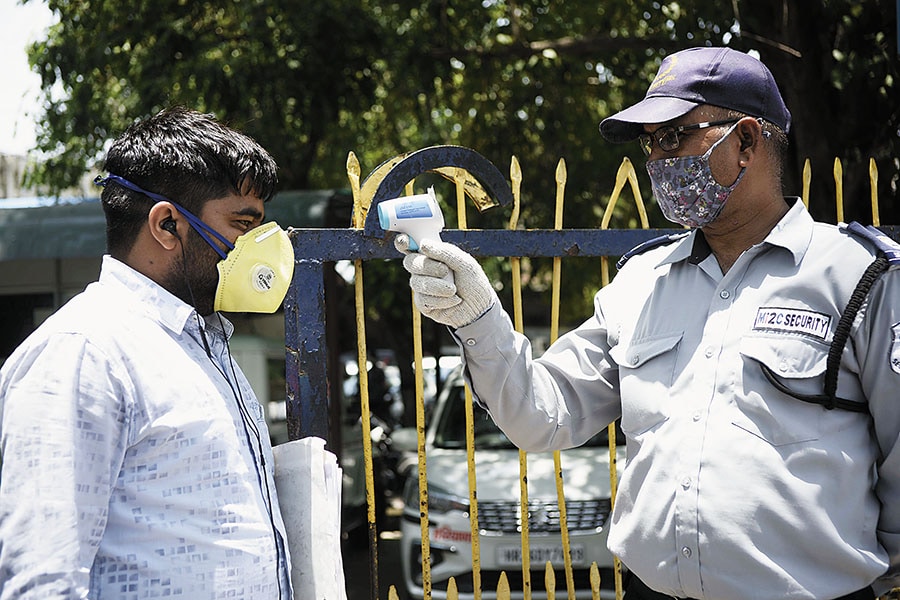
India sees spike in Covid-19 cases as factories reopen
Health experts say owners must tie up with labs and get employees tested for the coronavirus
 Companies are taking stringent measures to avoid the spread of the virus
Companies are taking stringent measures to avoid the spread of the virusImage: Parveen Kumar / Hindustan Times Via Getty Images
As companies reopen their factories across the country, multiples cases of employees at these sites contracting the coronavirus are emerging. Six staffers of Bajaj Auto at its Waluj plant in Aurangabad passed away because of Covid-19 while 300 others are infected with the virus.
Also, 264 workers of JSW Steel’s Vijaynagar Works tested positive for the coronavirus. Cases have also been reported at Bosch India’s plant at Bidadi near Bengaluru, and at Hyundai Motors India outlets. There have been cases in mobile manufacturing factories in Noida and Gurugram too.
“The company identified the workforce, including those who resided outside township premises and are critical for the operation of the plant, and made arrangements to accommodate all of them within the premises,” JSW Steel told Forbes India.
Apart from contact tracing and leveraging the company’s hospital networks, most firms are trying to completely restrict the movement of personnel in and out of factory premises.
Health experts say it has become pertinent that companies running factories with a larger labour force should tie up with labs to test their employees if they show symptoms.
“Running a large set-up like ours, we did foresee the infection spread happening sooner or later. To tackle this, we came up with a 4-T concept: Tracking, tracing, testing and treatment,” says Stephen Sudhakar J, senior vice president, people strategy and business support, Hyundai Motors, adding that some employees were affected, but most have recovered.
Ravi Uppal, chairman and managing director of Steel Infra Solutions, says no cases have been reported at their factories. He travelled from Delhi to Bhilai, Chhattisgarh, in June to visit the steel plants, meet his 1,100-odd employees and oversee operations there. “We are taking a number of stringent steps where employees have to wear masks and gloves… we also sanitise our factories continuously,” he says, adding that nearly 90 to 95 percent of his workforce is back at work.
(This story appears in the 30 November, -0001 issue of Forbes India. To visit our Archives, click here.)





